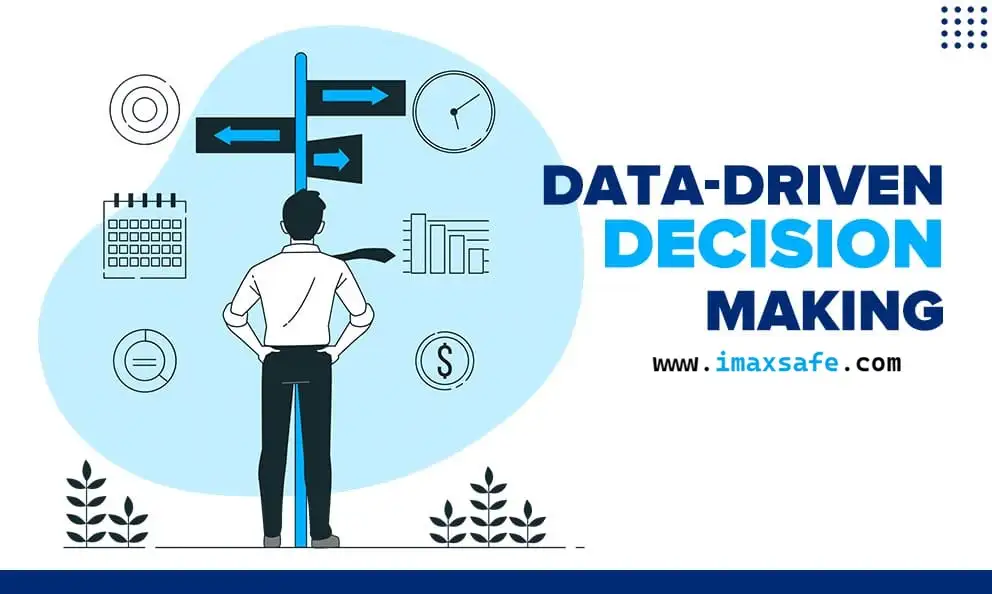Data-Driven Decisions: The COO’s Secret Weapon
In today’s volatile business landscape, one thing is clear: the role of a Chief Operating Officer (COO) is more critical—and complex—than ever before. The sheer volume of data produced daily by businesses offers both a challenge and an opportunity. COOs must not only keep operations running smoothly but also leverage data to drive efficiency, improve decision-making, and future-proof the organization.
For COOs, making decisions based solely on intuition is no longer sufficient. In a world defined by data, those who harness its power have a significant advantage over those who don’t. Welcome to the era of data-driven decision-making—the secret weapon for the modern COO .
The Shift to Data-Driven Decisions
Traditionally, operations relied on a mix of experience, historical performance, and educated guesses. However, as businesses become more interconnected and complex, these old ways of making decisions often lead to inefficiencies, missed opportunities, and delayed reactions to emerging threats.
Enter data.
Today, organizations generate more data than ever before—from customer interactions, production processes, supply chain operations, and financial reports to employee performance. The challenge for COOs is to sift through this data to extract actionable insights that can inform better, faster decisions. By turning raw data into predictive insights, COOs can transition from reactive to proactive leadership.
Why Data is a Game-Changer for COOs
Here are several reasons why data-driven decision-making is revolutionizing the role of COOs and transforming how businesses operate:
1. Improved Forecasting and Strategic Planning
Data gives COO the ability to predict future trends and make informed strategic decisions. Whether it’s anticipating market changes, customer demand, or supply chain disruptions, leveraging data allows you to forecast with greater accuracy. Instead of reacting to problems as they arise, data gives you the tools to preemptively address issues, avoiding costly delays and inefficiencies.
For example, by analyzing historical sales patterns and current customer behaviors, COOs can predict upcoming demand spikes or shifts in consumer preferences, ensuring the business is prepared with the necessary resources to meet that demand. This kind of predictive analytics is particularly valuable in industries like retail, manufacturing, and logistics, where sudden changes can lead to stock shortages, overproduction, or missed opportunities.
2. Maximizing Operational Efficiency
Data illuminates inefficiencies across every aspect of operations. From production lines to distribution networks, even minor delays or resource misallocations can lead to significant losses over time. By analyzing operational data, COOs can pinpoint where inefficiencies are happening and take corrective action.
For instance, a COO at a manufacturing plant might discover that a particular production line has higher downtime than others. By analyzing equipment data, they could identify the root cause—whether it’s mechanical issues, scheduling conflicts, or workforce shortages—and address it quickly. The end result? Reduced downtime, lower operational costs, and higher overall productivity.
3. Data-Driven Decision-Making Reduces Bias
Human decision-making, while invaluable, is often influenced by cognitive biases and emotions. Even the most experienced executives can fall prey to bias, leading to flawed judgments and costly errors. Data-driven decision-making introduces an objective foundation for your choices, minimizing the influence of personal biases.
When decisions are backed by concrete data, they’re less likely to be swayed by gut feelings or subjective viewpoints. Whether you’re deciding to enter a new market, launch a new product, or adjust your pricing strategy, the ability to rely on cold, hard facts gives you confidence that your decision is rooted in evidence rather than speculation.
4. Enhanced Customer Insights
Understanding your customers is vital for any business. Data-driven decision-making allows COOs to gain deeper insights into customer behaviors, preferences, and pain points. By analyzing customer data—whether from CRM systems, sales data, or social media feedback—COOs can identify trends, monitor customer satisfaction, and implement changes that directly impact the bottom line.
For instance, customer sentiment analysis could reveal that a product line is receiving negative reviews due to a specific feature or issue. With this data, COOs can work with product development and customer service teams to address the problem, improving customer satisfaction and brand loyalty.
5. Risk Management and Agility
One of the greatest challenges for any COO is managing risk while keeping the organization agile. Data provides the tools necessary to assess risk more effectively and make faster adjustments when things don’t go as planned. Predictive analytics allows COOs to foresee potential risks in areas such as supply chain disruptions, equipment failures, or regulatory changes. By identifying these risks early, COOs can take proactive measures to mitigate them.
Additionally, with data-driven systems in place, organizations can react quickly to changing market conditions. This agility is key in industries where shifts in consumer behavior, economic conditions, or technology can create sudden challenges—or opportunities. COOs who harness data to maintain flexibility can help their businesses thrive in volatile environments.
Implementing Data-Driven Decision-Making: A COO’s Roadmap
Adopting a data-driven approach isn’t as simple as installing the latest analytics software. It requires a shift in mindset, culture, and infrastructure. Here are a few steps to help COOs build a foundation for data-driven success:
1. Invest in Technology Infrastructure
Before you can start making data-driven decisions, you need the right tools. Ensure your company has the appropriate infrastructure to collect, store, and analyze data efficiently. Cloud-based platforms, real-time analytics tools, and machine learning algorithms can offer scalable solutions for businesses of all sizes. The key is to select tools that integrate seamlessly with your existing systems and provide actionable insights.
2. Foster a Data-Literate Workforce
Having the data is one thing; knowing how to use it is another. To truly leverage data-driven decision-making, you need to ensure that your team has the skills to interpret data and act on it. Invest in data literacy training for your leadership team and staff, ensuring they understand how to analyze and apply data in their daily operations.
3. Focus on Actionable KPIs
Not all data is valuable. The goal should be to identify the key performance indicators (KPIs) that truly drive your business. These might include production metrics, customer satisfaction scores, or financial performance indicators. By honing in on the most relevant data points, COOs can avoid drowning in information overload and stay focused on what matters.
4. Build a Data-Driven Culture
To fully embrace data-driven decision-making, it’s essential to foster a culture where data is central to every decision. Encourage your teams to rely on data when presenting reports, making recommendations, or proposing changes. When data becomes part of the organization’s DNA, decisions across all levels of the business become more aligned, objective, and strategic.
You May Also Like This Article
Conclusion: The Future Belongs to Data-Driven COOs
In a rapidly changing world, the ability to make informed, data-backed decisions is a critical advantage for any COO. Data not only provides insights into current operations but also offers a window into future trends, risks, and opportunities. As COOs become more reliant on data to guide their strategies, they will transform from operational managers into visionary leaders who drive their organizations forward.
By adopting a data-first approach, COOs can ensure their businesses remain agile, efficient, and competitive in an increasingly data-driven world.






